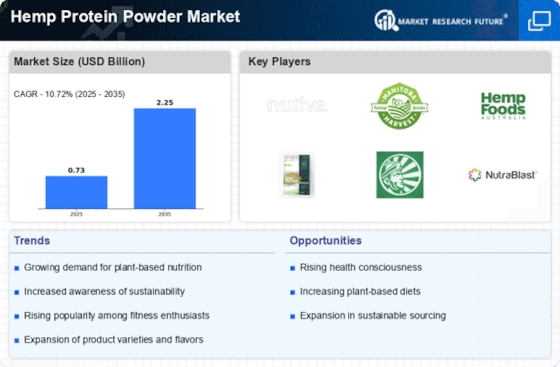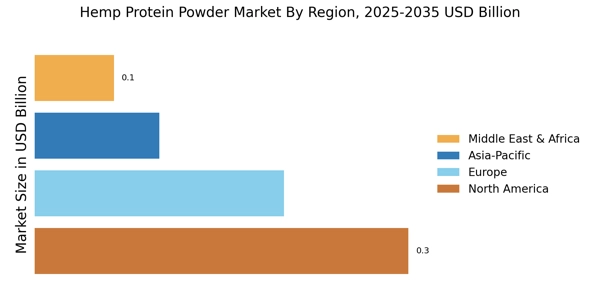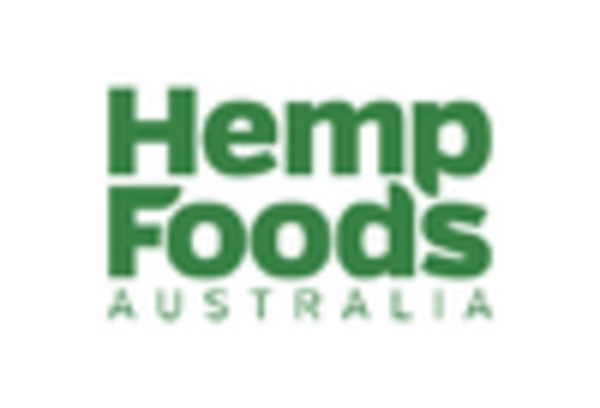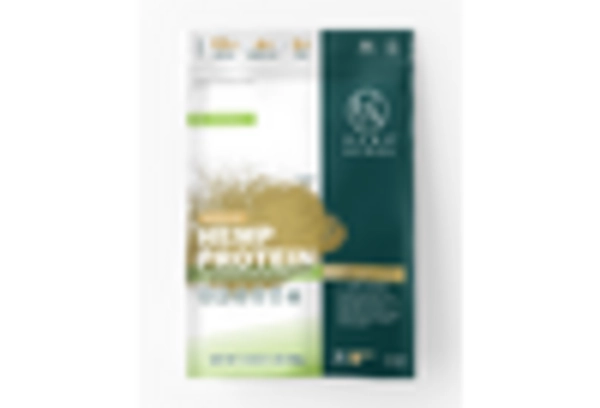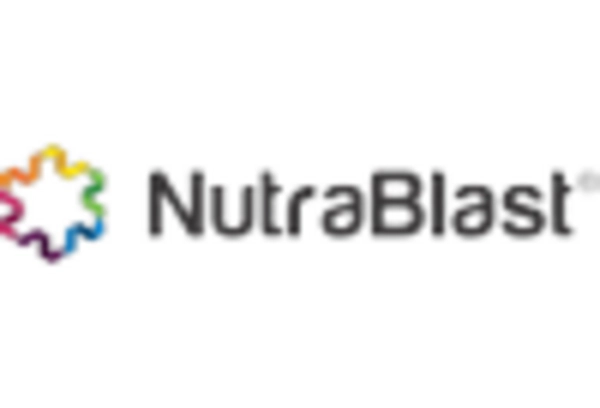Rise of Vegan and Vegetarian Diets
The growing popularity of vegan and vegetarian diets significantly influences the Hemp Protein Powder Market. As more individuals adopt these dietary lifestyles, the demand for plant-based protein sources, such as hemp protein powder, is expected to increase. This shift is not merely a trend but appears to be a long-term change in consumer behavior. Market analysis indicates that the vegan food market is anticipated to reach a valuation of over 24 billion dollars by 2026. Consequently, the Hemp Protein Powder Market stands to benefit from this expanding consumer base, as hemp protein aligns well with the nutritional needs of those following plant-based diets.
Expansion of E-commerce and Online Retail
The rise of e-commerce and online retail platforms is transforming the way consumers access products, including those in the Hemp Protein Powder Market. With the convenience of online shopping, consumers can easily compare products, read reviews, and make informed purchasing decisions. Data indicates that online sales of health and wellness products are projected to grow by 15% annually. This trend suggests that the Hemp Protein Powder Market could benefit from increased visibility and accessibility through online channels, allowing brands to reach a broader audience and cater to the growing demand for hemp protein products.
Increased Focus on Sustainable Food Sources
Sustainability has become a crucial consideration for consumers, which is likely to drive the Hemp Protein Powder Market. Hemp cultivation is known for its low environmental impact, requiring fewer resources compared to traditional crops. This eco-friendly aspect resonates with environmentally conscious consumers who are increasingly seeking sustainable food options. Reports suggest that the demand for sustainable food products is expected to grow by 10% annually. As a result, the Hemp Protein Powder Market may see a surge in interest as consumers prioritize products that align with their values regarding sustainability and environmental stewardship.
Health Consciousness and Nutritional Awareness
The increasing health consciousness among consumers appears to be a pivotal driver for the Hemp Protein Powder Market. As individuals become more aware of the nutritional benefits associated with plant-based proteins, the demand for hemp protein powder is likely to rise. Hemp protein is rich in essential amino acids, omega fatty acids, and fiber, making it an attractive option for health enthusiasts. Recent data indicates that the plant-based protein market is projected to grow at a compound annual growth rate of approximately 7.5% over the next five years. This trend suggests that the Hemp Protein Powder Market could experience substantial growth as consumers seek healthier dietary alternatives.
Innovative Product Development and Formulation
Innovation in product development is a key driver for the Hemp Protein Powder Market. Manufacturers are increasingly focusing on creating diverse formulations that cater to various consumer preferences, such as flavored protein powders, ready-to-drink options, and blends with other superfoods. This trend towards innovation is supported by Market Research Future indicating that the functional food market is expected to grow significantly, with plant-based proteins playing a central role. As a result, the Hemp Protein Powder Market is likely to see a proliferation of new products that appeal to a wider range of consumers, enhancing market growth.


